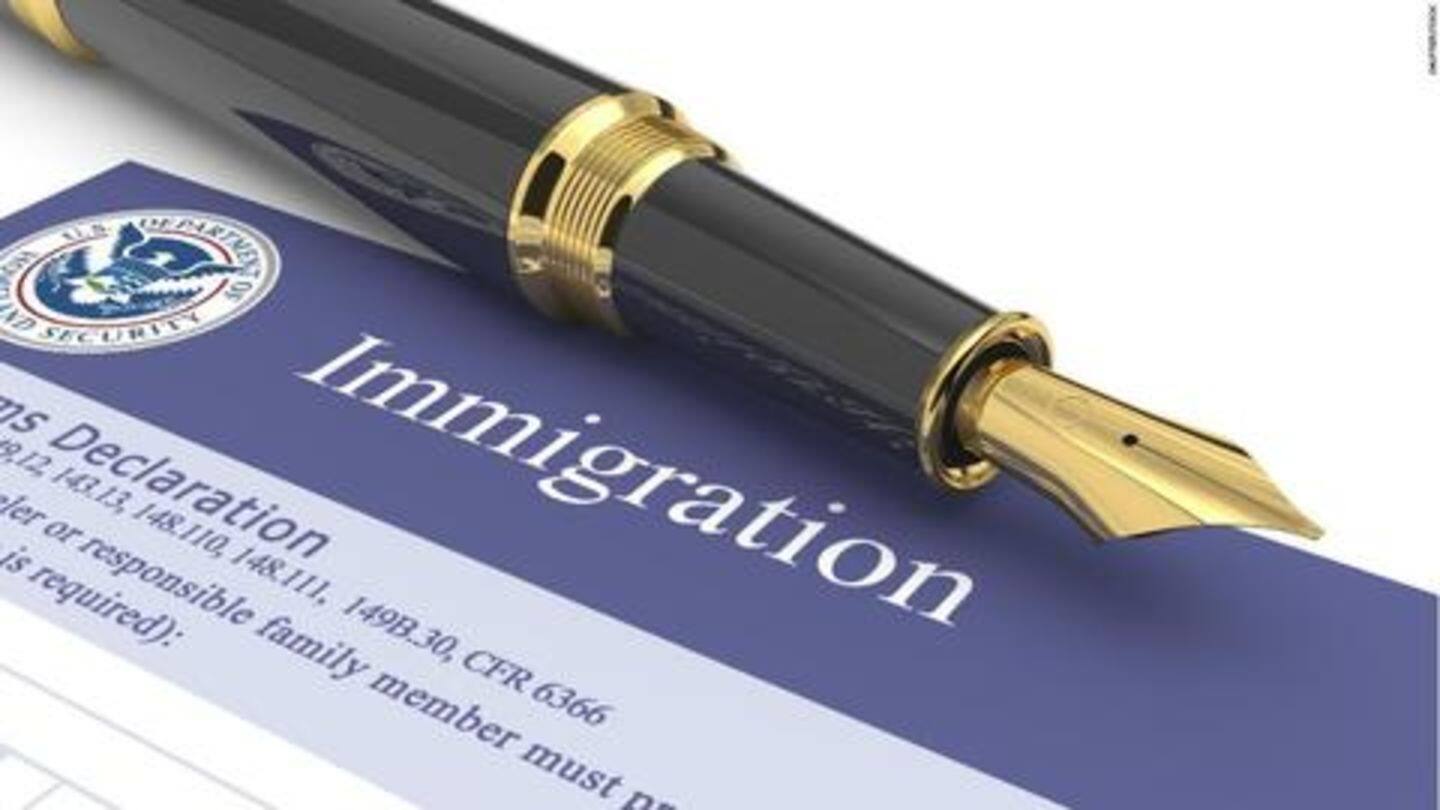
US proposes changes to H-1B visas; favors highest-paid foreign workers
What's the story
The Trump administration yesterday proposed major changes to the H-1B application process with the aim of awarding the visa to the most skilled and highest paid foreign workers. Under the new rule, companies employing foreign workers on the H-1B visa under the Congressional mandated annual caps, would have to electronically register with the US Citizenship and Immigration Services (USCIS) during a designated registration period.
Visa limit
20,000 beneficiaries with US master's degree exempted from visa cap
The H-1B visa has an annual numerical limit cap of 65,000 visas each fiscal year as mandated by the Congress. The first 20,000 petitions filed on behalf of beneficiaries with a US master's degree or higher are exempt from the cap. The USCIS would also reverse the order allowing it to select H-1B petitions under the H-1B cap and the advanced degree exemption.
Statement
Public comments can be submitted from December-3 to January-2
The proposed changes are likely to increase the number of foreign workers with a higher degree from a US institution of higher education to be selected for an H-1B cap number. As such the proposed rule will be introducing a more meritorious selection of beneficiaries, the Department of Homeland Security (DHS) said, adding public comments can be submitted from December 3 to January 2.
Changes
New proposed rule will reverse the H-1B selection order
Currently, in years when both the H-1B cap and the advanced degree exemption are reached within the first five days that H-1B cap petitions may be filed, the advanced degree exemption is selected prior to the H-1B cap. "The proposed rule would reverse the selection order and count all registrations/petitions towards the number projected as needed to reach the H-1B cap first," DHS said.
Opportunity
Proposed change would ensure H-1B visa for most-skilled beneficiaries: DHS
Once a sufficient number of registrations or petitions have been selected for the H-1B cap, the USCIS would then select registrations or petitions towards the advanced degree exemption. This proposed change would increase the chances that beneficiaries with a higher degree would be selected under the H-1B cap and that H-1B visas would be awarded to the most-skilled and highest-paid beneficiaries, it said.
Information
Possible consequence: 16% rise in number of selected H-1B beneficiaries
The Washington-headquartered DHS also said that the proposed process would result in an estimated increase of up to 16% (or 5,340 workers) in the number of selected H-1B beneficiaries with a master's degree or higher from a US institution of higher education.
Expectation
Electronic registration will make the whole process cost-effective
The USCIS said it expects that shifting to electronic registration would reduce overall costs for petitioners and create a cost-effective H-1B cap petition process for the agency. The proposed rule would help alleviate massive administrative burdens on USCIS since the agency would no longer need to physically receive and handle H-1B petitions and support documentation before conducting the cap selection process, stated DHS.
Information
Proposed rule would protect integrity of registration system: USCIS
This would help reduce wait times for cap selection notifications. The proposed rule also limits the filing of H-1B cap-subject petitions to the beneficiary named on the originally selected registration, which would protect the integrity of this registration system, USCIS said.